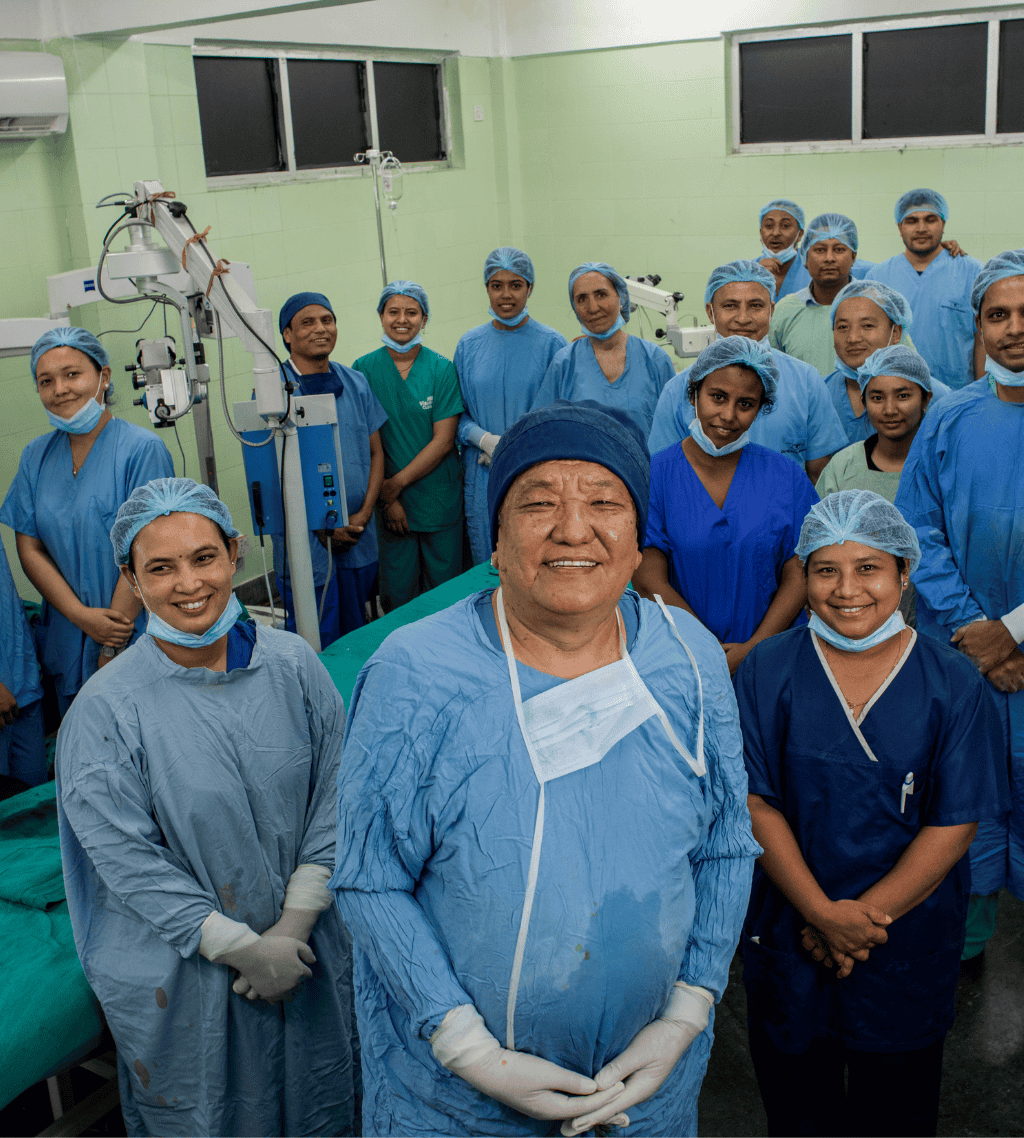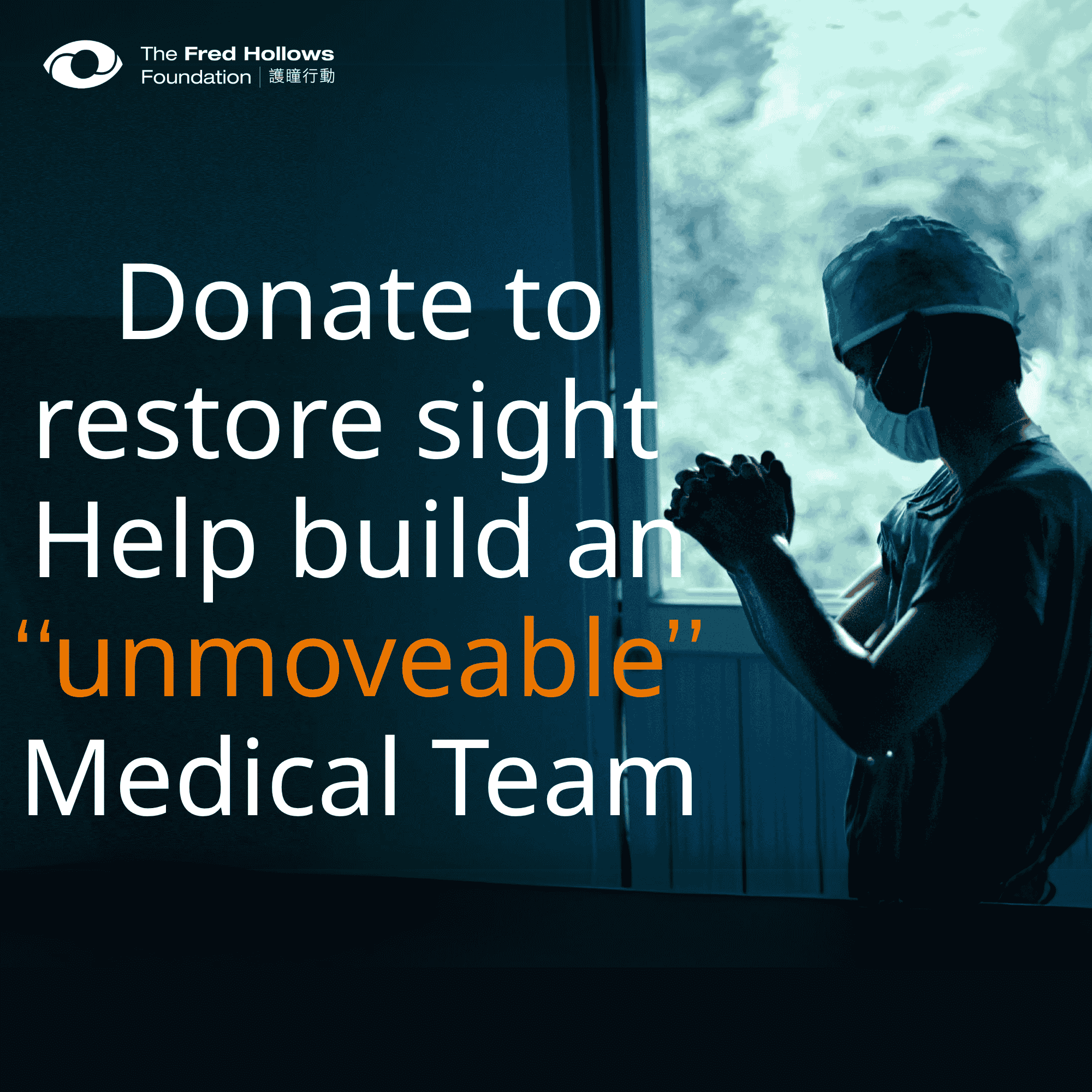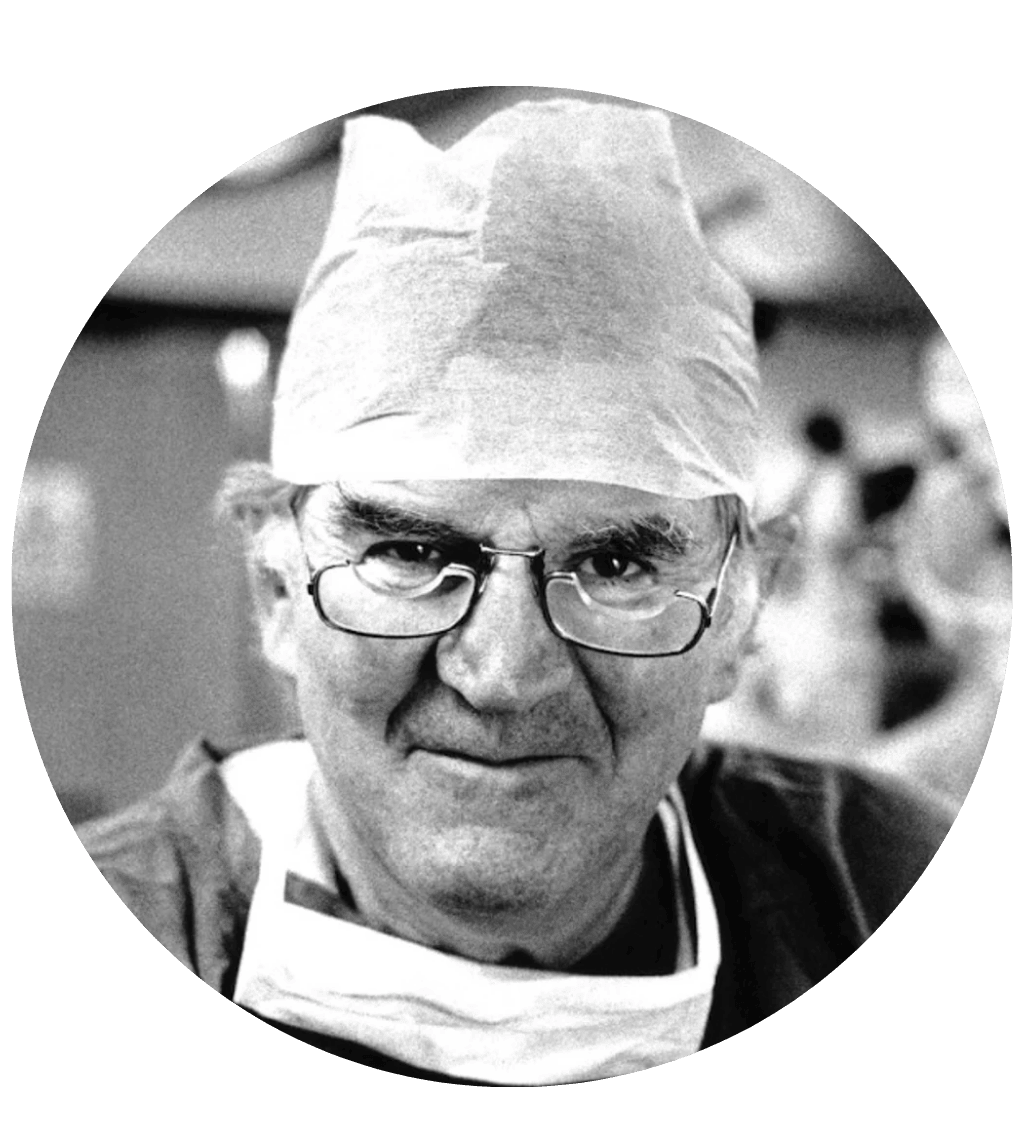
Building local skills has always, and will always, be at the heart of our work.
Building local medical teams holds significant importance for the entire development of ophthalmic care, which was also a goal that Professor Fred Hollows persistently pursued during his lifetime.
“One of the great joys of my life is having been part of the training of Sanduk Ruit and his training others.”
Fred was an advocate of hands-on learning. He firmly believed there should always be three people in a room: a teacher, a student and a patient. Whether it was in an operating theatre in Sydney or Hanoi, Fred took great delight in seeing the moment of understanding in his students’ eyes.
Nepal’s blindness
Blind people in Nepal do not use canes or guide dogs. If blindness is not treated, most people can only spend their days at home alone.
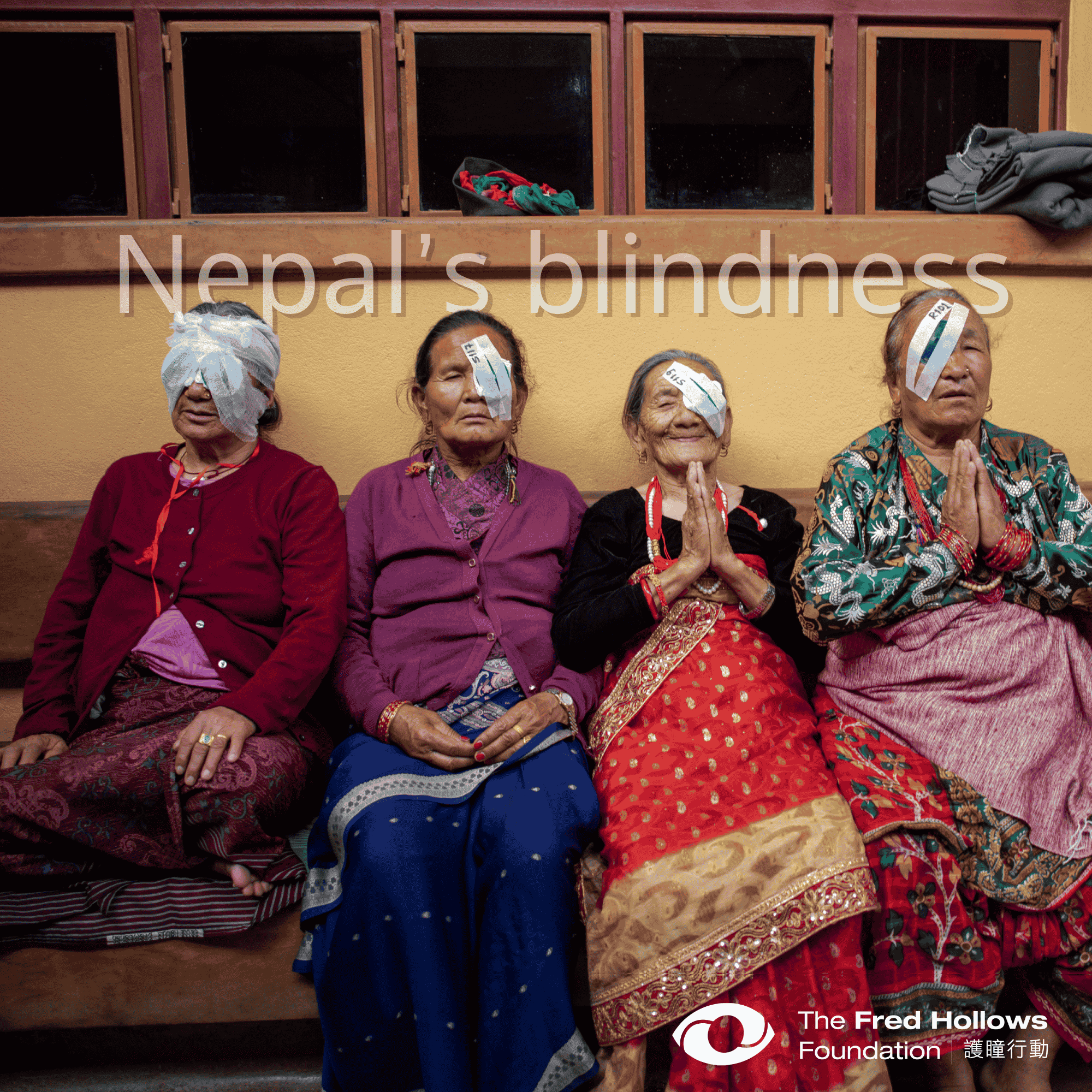
Chini, 74, was blinded by cataracts. She said: "I hope to go out alone and by myself, take a walk in the Monkey Temple like it was before." Two of her 70-year-old buddies also suffer from cataracts. The two girlfriends expressed the same: "I hope to do the housework myself, farm in the fields, and walk freely without worrying about falling or getting lost.”
Therefore, our sight-restoring work in Nepal is extremely important. Regaining vision means taking charge of one’s own life and independence.
The Fred Hollows Foundation, Dr Ruit and Nepal
The Fred Hollows Foundation’s sight-restoring work in Nepal was largely made possible by two pivotal figures crucial to the organization: The Fred Hollows Foundation Founder – Professor Fred Hollows, a leading authority in ophthalmology, and his student and close friend, Dr Sanduk Ruit.
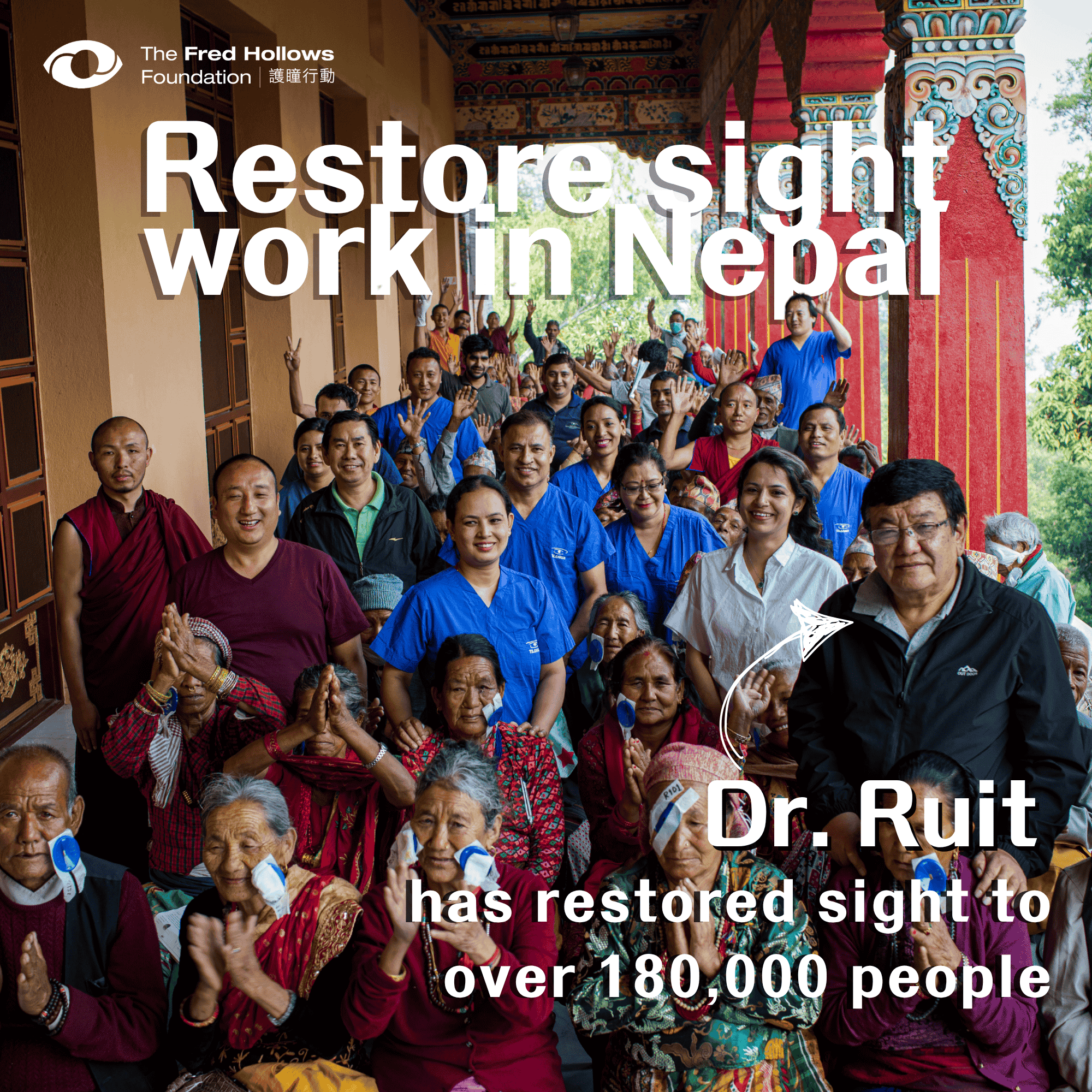
Fred Hollows and Dr Sanduk Ruit met in Nepal in the mid 1980s while Fred was consulting for the World Health Organization.
They soon realised they shared a common dream: to end avoidable blindness in developing countries by introducing modern cataract surgery techniques.
Fred and Dr Ruit set about planning to build an intraocular lens factory to mass-produce these vital lenses needed for cataract surgery. They knew producing them locally would bring the cost down significantly.
Fred became Dr Ruit’s mentor, and after studying with Fred in Sydney, Dr Ruit went on to help establish The Fred Hollows Intraocular Lens Laboratory with the help of The Foundation.
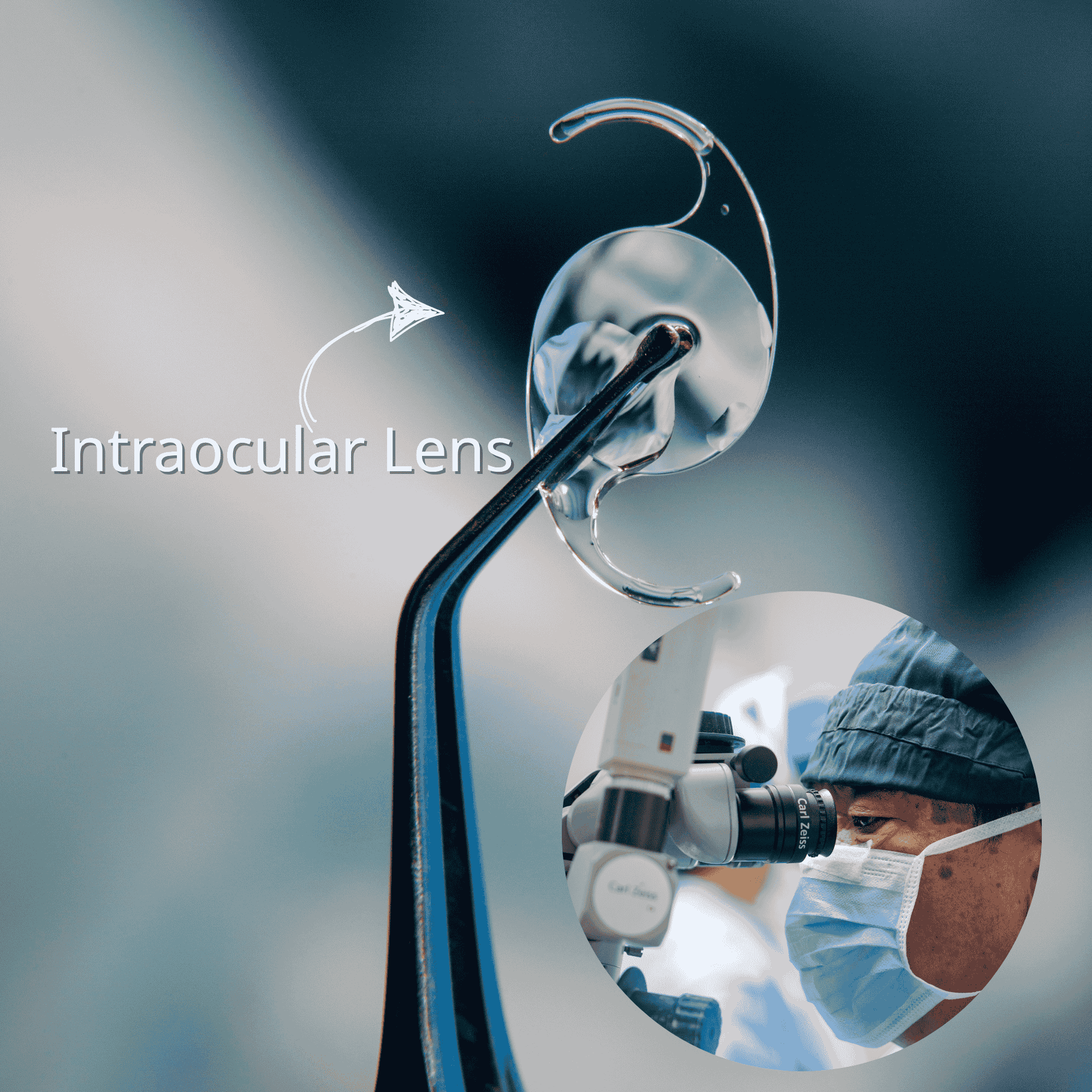
In 1994, the same year the factory opened, Dr Ruit became the medical director of the Tilganga Institute of Ophthalmology in Nepal – a key partner of The Foundation. It’s now a world-class facility and is still led by master surgeon Dr Ruit, who has restored sight to over 180,000 people.
We work very closely with the Tilganga Institute of Ophthalmology to train eye care personnel, build facilities, conduct community outreach clinics, and implement eye health programs that have made a real difference to people’s lives.
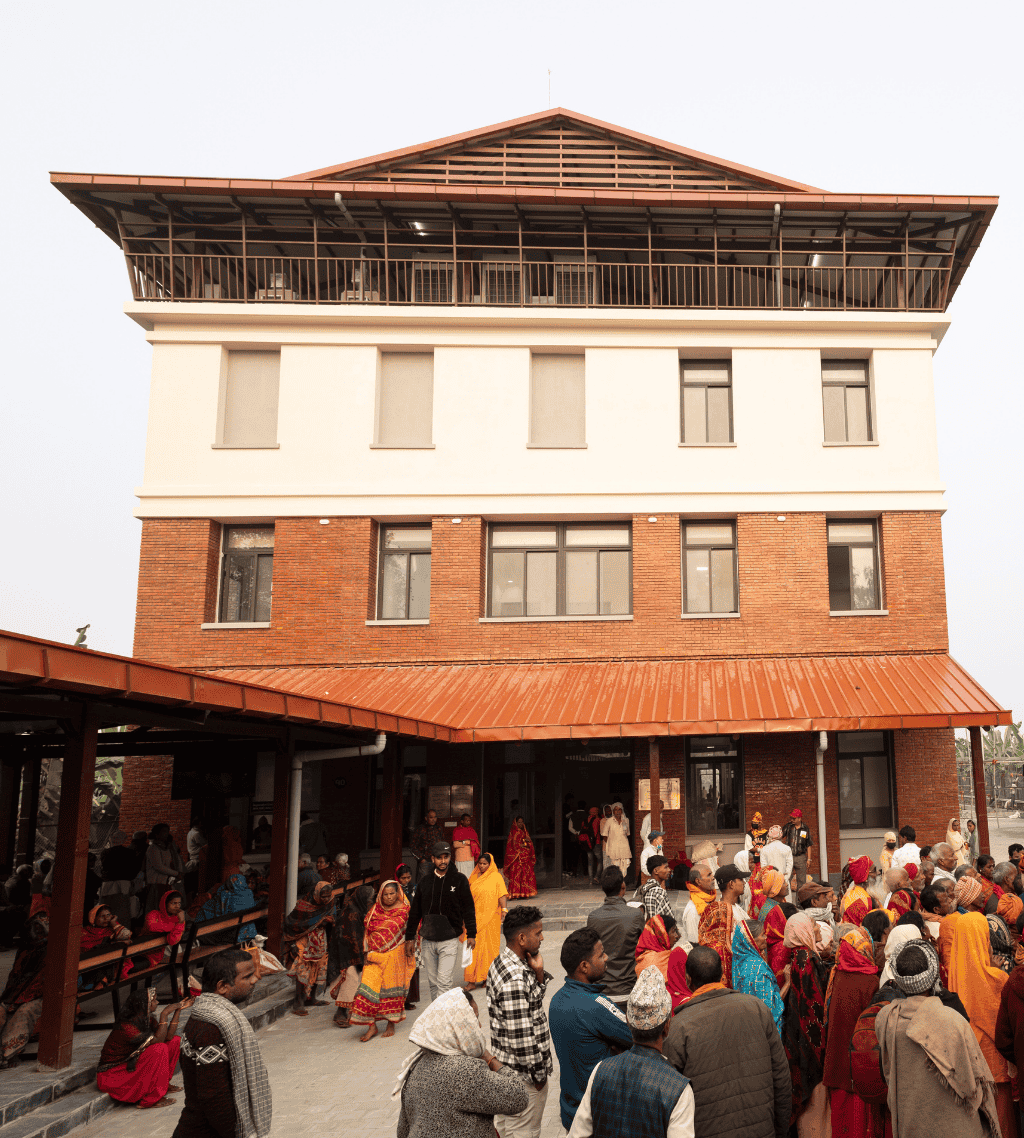
Nepal and The Fred Hollows Foundation: Hospital to Serve 55,000 Patients Annually
In late 2024, the Nijgadh Tilganga Community Eye Hospital—a partnership between the Tilganga Institute of Ophthalmology and The Fred Hollows Foundation —officially opened, marking the realization of Dr Ruit’s vision.
“The hospital is a dream come true. It is another landmark in our commitment to deliver sustainable high quality eye care at the grassroot level.”
The 4-floor hospital spans 23,000 square feet. It is equipped with two operating theatres, laser rooms, outpatient and inpatient departments, a recovery ward, and an in-house pharmacy and optical store. It will use renewable energy. Solar panels have been installed and efficient heating and air conditioning systems are in use.
Tour the Nepal Eye Hospital with Dr Sanduk Ruit

We continue to work tirelessly to fight blindness.
The Fred Hollows Foundation has been striving to make a difference in blindness prevention. Thanks to your support, we have achieved significant results in South Asia and the Middle East:*
- We screened 1,035,570 people
- We performed 137,047 eye operations and treatments, including 81,228 cataract operations, 2,400 diabetic retinopathy treatments and 53,419 other sight saving or improving interventions.
- We distributed 44,732 pairs of glasses.
- We trained 3,292 people, including community health workers, surgeons, clinic support staff and teachers.
- We educated 134,786 school children and community members in eye health and sanitation.
- We built, equipped or renovated 450 facilities.
Source: The Fred Hollows Foundation Annual Report 2023, covering the organization’s work in South Asia and the Middle East across Pakistan, Bangladesh, Myanmar, Nepal, Palestine, Jordan, and Afghanistan.
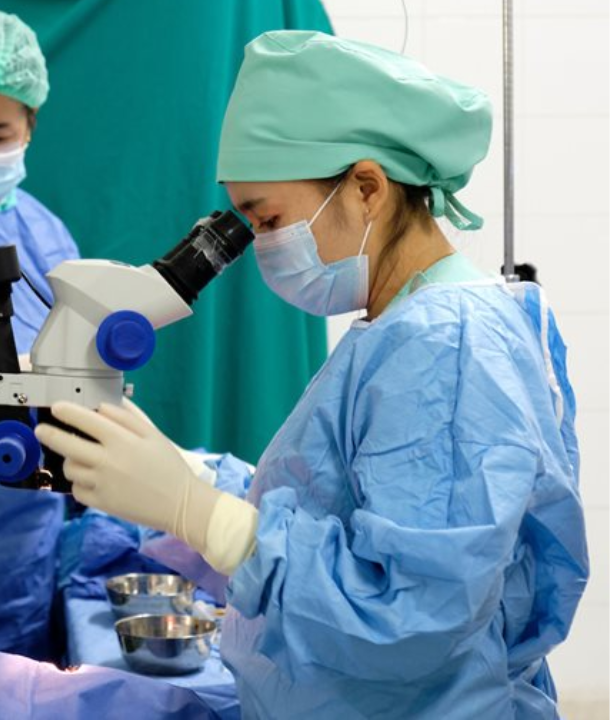
WHAT IMPACT CAN YOUR DONATION BRING?
Blindness and vision impairment is a health issue, and related to a person's well-being, quality of life and development opportunities. The Fred Hollows Foundation believes that a fly-in-fly-out model is not the best way to develop a place’s eye health care. Our vision is to build sustainable, good quality and affordable eye care in remote areas of the world.
Your donation will be used to:
- Train surgeons or eye health workers
- Provide medical equipment
- Organise eye screening camps in remote areas
- Raise awareness of eye health to the public
- Invest in innovation and research
